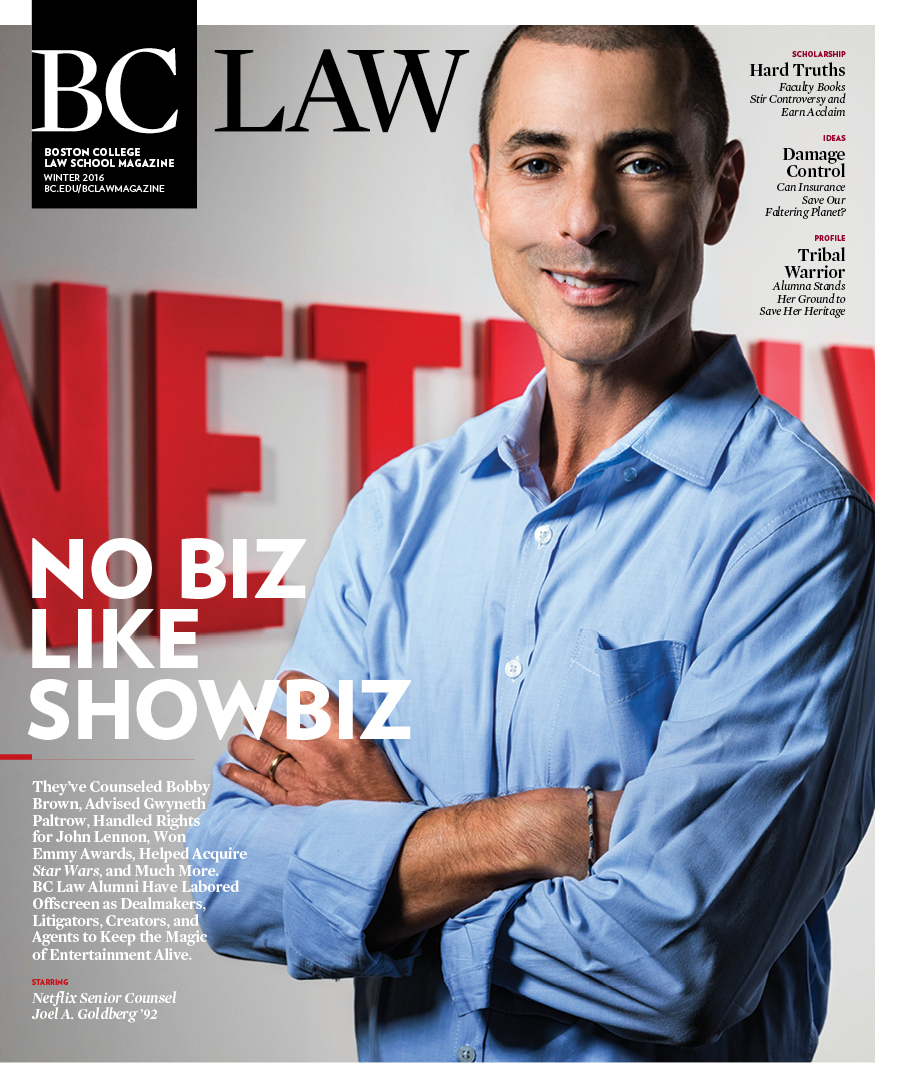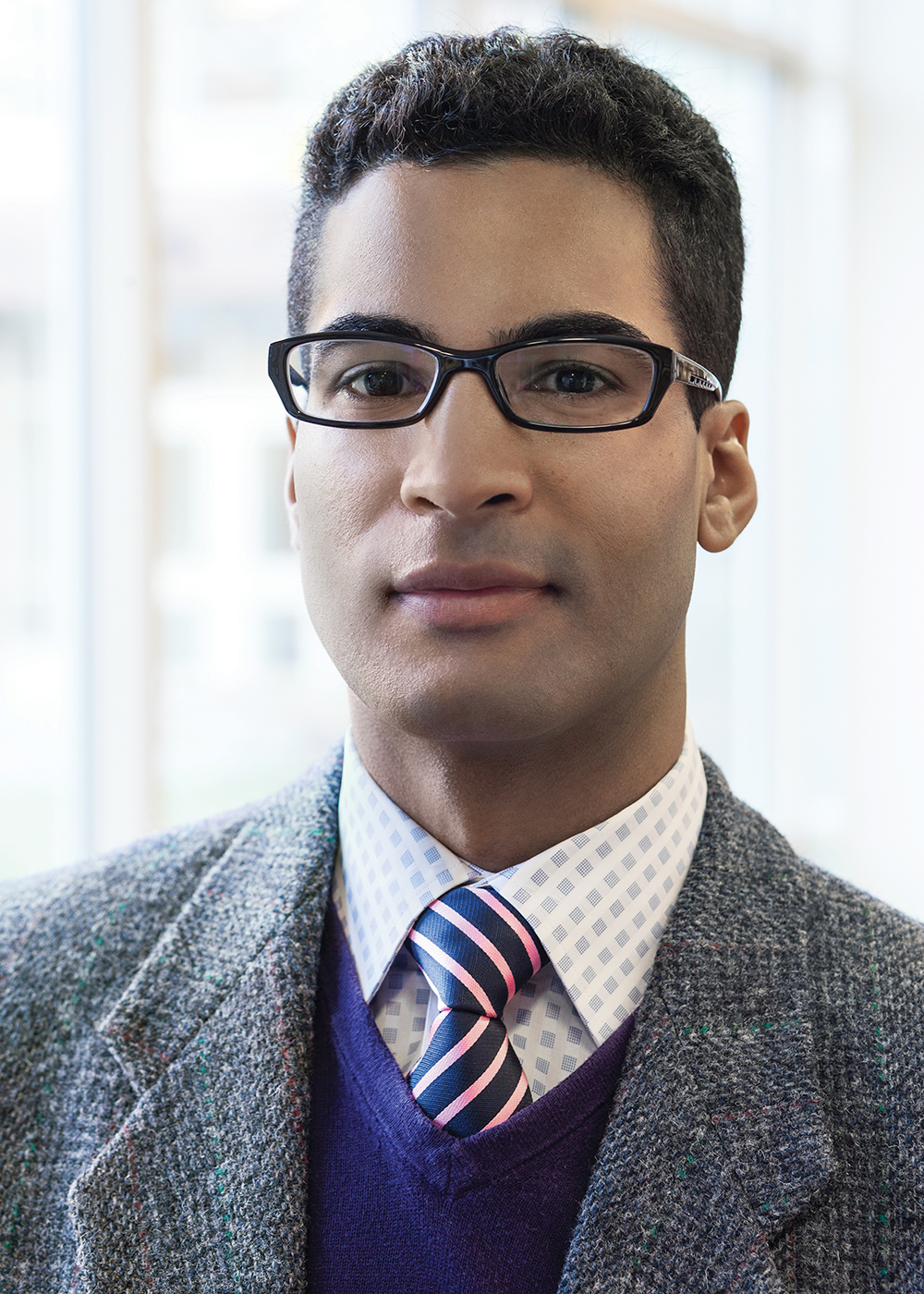Epiphanies can take many forms. Richard Albert’s epiphany came in the form of a frog.
Albert graduated from his Gloucester High School in Ottawa and entered Yale as a pre-med, sure he’d be a doctor. “Everything was going well, and then second semester I was in bio lab and the assignment was to dissect a frog,” he recalls. “I just couldn’t stomach it.”
Squeamishness set Albert on a new course, and today he is a rising star in the emerging field of comparative constitutional change—the study of how nations change their constitutions. An associate professor with tenure and a 2015-2016 visiting professor at the MacMillan Center for International and Area Studies at Yale University, Albert is a teacher, researcher, and builder of a global community of scholars interested in public law—the relationship between individuals and their governments. He’s an untiring convener of conferences and symposia in places like Dublin, Montreal, Istanbul, Nakuru, Wellington, Berlin, Haifa, Brasilia, Rome, and Tokyo that each year grow in popularity and scholarly output.
A potent blend of life experience, mentorship, and hard work brought Albert to this point in his career. After the frog incident in college, Albert thrived in the absorbing class discussions and scholarly writing of his political science courses. His work-study job at Yale’s law school exposed him to a potential new future, and soon the pre-med was pre-law and then a first year law student at Yale. Albert became a teaching assistant for his Civil Procedure professor and mentor Owen Fiss, taught several undergraduate political science courses, and began writing substantial research papers under the supervision of legal lights like Professor Stephen Carter, Akhil Amar, and Drew Days. He received his JD from Yale in 2003, clerked for Chief Justice Beverley McLachlin of the Supreme Court of Canada, got his Bachelor of Civil Law from Oxford in 2007, and his LLM from Harvard in 2008.
“The disjunction between constitutional text and constitutional reality is problematic. I want to narrow that gulf.”
Albert was born in Quebec to a Trinidadian father and Haitian mother, who divorced when he and his older sister were little. His mother moved her young family to Haiti for several years, and then returned to Canada. “I think that I was fated to be writing about constitutional change, given where I lived,” Albert says. The political shenanigans that arise out of Quebec’s being governed under, though not a signatory to, Canada’s constitution is a sign that the country has yet to achieve what Albert calls “constitutional peace.”
“I am interested in being involved in Canada, in bringing some peace and reconciliation at some point,” Albert says. He’s published several papers on Canada’s constitution, including the forthcoming “The Theory and Doctrine of Unconstitutional Constitutional Amendment in Canada (Queen’s Law Journal), and “The Difficulty of Constitutional Amendment in Canada,” (Alberta Law Review).
Albert’s visits to Haiti—his mother runs a charitable foundation there—allow him to see firsthand the limits of constitutions. “Haiti is in very big trouble,” he says. “These guys have a constitution, but they are living this way and the institutions of government are just not up to the task.” He continues: “Constitutions are just paper, and you need more than the paper to create a stable country that respects the rule of law.” Democracy is possible, he says, only when values like predictability, transparency, and accountability are codified and enforced. When a constitution says that the people have the right to shelter, but homelessness is rampant, that’s an issue. “This disjunction between constitutional text and constitutional reality is problematic,” he says. “I want to narrow that gulf.”
Albert wants to help drafters to understand the implications of amending constitutions, including the establishment of rules for amendment. Those rules, he says, are as revealing of a nation’s values as a constitution’s substantive text. In his view, “amendment rules are a window into the soul of a people—they tell us what the designers of the constitution value most.” Increasingly, nations are stipulating that certain aspects of their constitutions are not amendable. “For example,” Albert says, “France will say, ‘Here is how you can amend the constitution: You can amend everything except for the Republican character of the state.’ Or Turkey will say, ‘You can amend everything except for the secular nature of the state.’ Germany: ‘You can amend everything except for the federal structure of the state and human dignity.’ Interesting.”
He asks: “The United States? Do you know what it made unamendable? The slave trade. The Constitution made the slave trade unamendable until the year 1808.”
Albert credits his many mentors with helping him become the scholar he is today, among them Harvard Law Professor Mark Tushnet. Tushnet calls Albert’s scholarship on the relatively neglected area of formal written rules for amending constitutions “an important contribution to the projects of constitutional design.”
The conferences Albert organizes, Tushnet says, “have helped create and sustain a worldwide community of scholars in the field of comparative constitutional law.” Albert does this work in many ways: co-editing I-CONnect, the blog of the International Journal of Constitutional Law, and ConstitutionMaking.org, a virtual community of public law scholars; chairing, until recently, the Younger Comparativists Committee in the American Society of Comparative Law (their first conference abroad will be held in Turkey in 2018); and helping to organize the mega-conferences of the International Society of Public Law. Topics from last year’s conference included “Legal Uncertainties in the Cyber Era” and “Human Rights & Borders in an Uncertain World.” For its inaugural academic symposium, the Association of American Law Schools accepted Albert’s proposal for a day-long program on Constitutional Amendment and Change.
Papers were published in the two best journals in the field.




